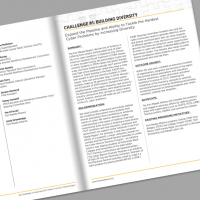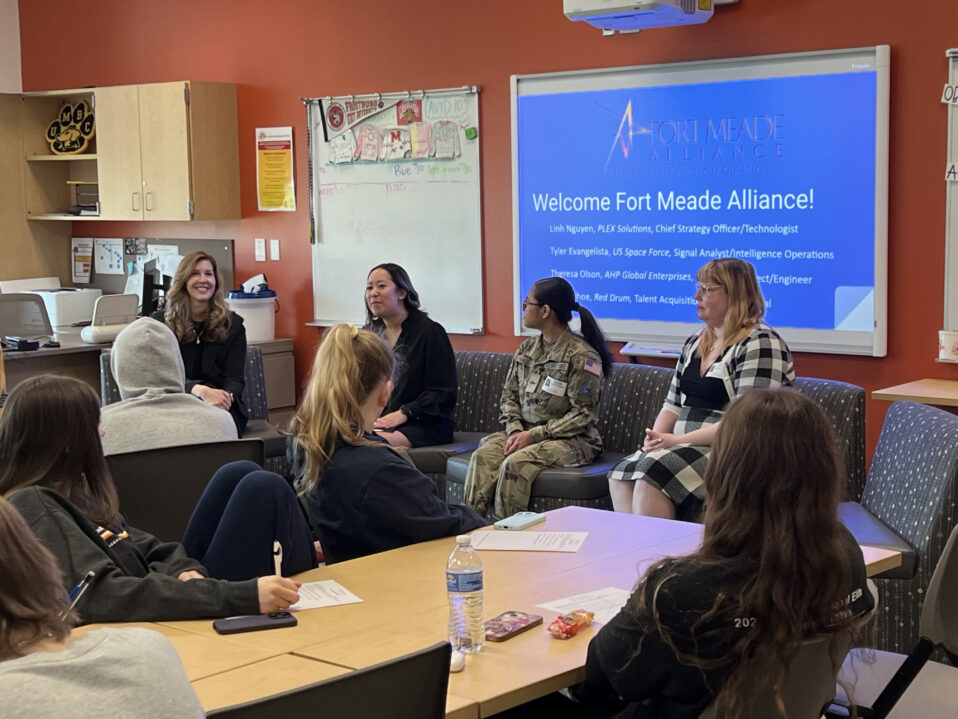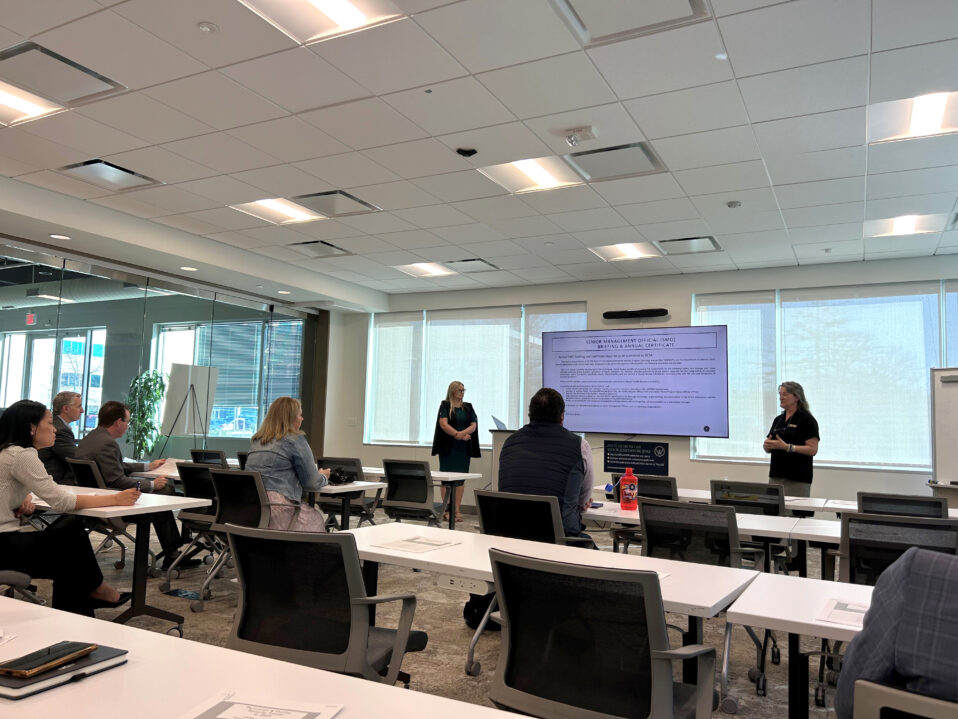 A serious shortage of computer science, cybersecurity and other STEM instructors in public schools and community colleges is driving new efforts to find ways to augment teaching resources with cyber industry professionals.
A serious shortage of computer science, cybersecurity and other STEM instructors in public schools and community colleges is driving new efforts to find ways to augment teaching resources with cyber industry professionals.
“In computer science, it is very difficult to find instructors. We are barely getting by,” said Justin Serota, Computer Science Resource Teacher K-12 and DoDEA Cyber LAUNCH Grant Resource Teacher at Anne Arundel County Public Schools (AACPS). Furthermore, that shortage is happening at a time when “our computer science program is growing rapidly, from just a couple of hundred students four or five years ago to about 4,000 this spring.”
Howard Community College is experiencing the same trend — growing numbers of students eager to study computer science and cyber and growing difficulties hiring instructors to teach them.
“The need for qualified instructors is higher than ever before,” said Dr. Patrick Valdivia, Manager of Computing and Cyber Lab Services at HCC’s Business and Computer Systems Division. “Howard Community College is designated as a Center for Academic Excellence in Cybersecurity, an AWS Academy provider in relation to our Cloud operations and security program, a Cisco Academy and a National Center of Digital Forensics Academic Excellence. In addition, we have programs in computer science as well as application development. We managed all of this last year with only six full-time faculty and 24 adjunct faculty.”
That situation compelled many full-time faculty to teach more courses than in previous years, Valdivia said.
“With additional qualified faculty, we could open up more sections of courses, introduce new course offerings and increase the options for delivery modalities — online, hybrid or scheduled remote.”
In addition to extensive recruiting efforts, schools and colleges are endeavoring to create new teachers. HCC will pair an IT/cyber industry professional with a full-time instructor who helps the industry professional learn effective teaching practices. AACPS, in partnership with Anne Arundel Community College (AACC), runs a resident teacher certification program. It provides a new hire (such as an IT professional) with a public school job and the ability to earn their teaching certification through night classes at AACC.
Increasingly, schools and colleges are bringing industry professionals into the classroom.
Nearly every week over the last academic year, a team of volunteers from Fort Meade and U.S. Cyber Command provided cyber education to up to 10 AACPS schools. The online courses grew out of an initiative that retired Air Force Colonel Gina Giles started several years ago. She arranged through the Air Force Association to provide coaching for a Cyber Patriot team at Meade High School.
Soon, Giles’ growing band of cyber volunteers were holding weekly after-school sessions, teaching kids about topics ranging from the inner workings of computer hardware to steganography, the history of the enigma machine and the wide range of possible careers in cybersecurity. They brought in young mentors who the kids could relate to. And they have stayed connected with graduates to provide ongoing support, such as helping one young man enter the Navy Reserves in order to finance his education and helping another obtain a car so he could juggle work and college classes.
“We just love doing this. It is our passion,” Giles said. “We have 15 volunteers now from all the services and these young people are just thrilled to talk with the kids. We reach kids who aren’t 4.0 average kids but who have capabilities. Our hope is to help more kids get opportunities and reach their potential.”
“There are a lot of students in my program who previously didn’t see college as a path for them. They were expecting to get a job, not build a career,” Naseem said. “But our business partners are so willing to give of their time and resources. They talk to students about real issues, offer job shadowing, and show them some of the really cool workplaces in Howard and Anne Arundel County. They help the kids get excited about their futures.”
At AACPS, administrators hope a recent state law combined with a lesson from the pandemic will enable them to bring more industry expertise into classrooms. State law now enables certain subject matter experts to earn a limited teaching certification and lead classes.
“This creates the opportunity to offer part-time teaching positions to industry professionals in areas like computer science where we are strapped for teachers,” said Dr. Maureen McMahon, Deputy Superintendent of AACPS.
A pandemic year of virtual school which outfitted students with Chromebooks, also created wider and more convenient opportunities to have industry professionals teach AACPS classes, McMahon said. Classes can be delivered online and AACPS is open to tailoring class schedules to fit with instructors’ industry work schedules.
At HCC, Betty Noble, Acting Dean of the Business and Computer Systems Division, is also hoping some local companies and industry professionals will consider making teaching part of their work routines.
“I would really like to find 25 employers who are willing to support employees in taking on part-time teaching roles at the college,” Noble said.
In addition to helping develop the future workforce, this arrangement could benefit new instructors and their companies, Valdivia said.
“Teaching, especially at the community college level, is a fantastic way of honing one’s knowledge and expertise in a technical field… It also increases communication and managerial skills,” he added.
READY TO HELP TEACH?
If you are interested in helping to fix the shortage of instructors in the Fort Meade Region, contact FMA Education and Workforce Development Director Jenn Munt at jmunt@ftmeadealliance.org or 410-850-4940 to get connected.
For More Information

Top Five Challenges
A summary of what the top five challenges are to resolve the cyber workforce shortage.

White Paper Report
A detailed report of the top five challenges to resolving the cyber workforce shortage.




